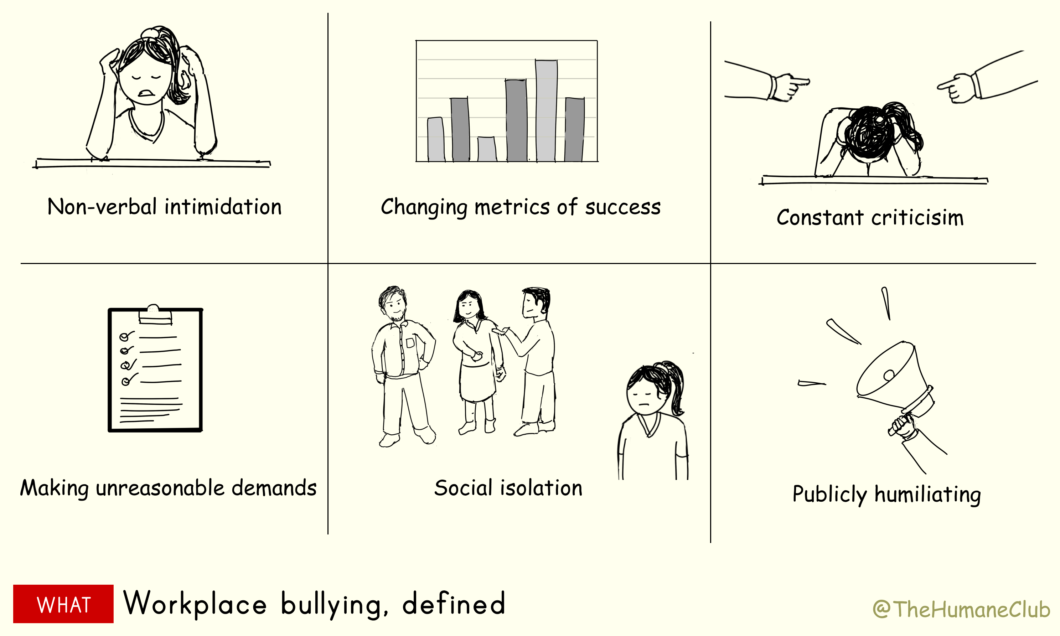
What is bullying?

It is a non-physical form of workplace violence. While bullying is a form of aggression, the actions can be both obvious and subtle. It is important to note that the following is not a checklist, nor does it mention all forms of bullying. There is no way to predict who may be the bully or the target.
This list is included as a way of showing some of the ways bullying may happen in a workplace. Also remember that bullying is usually considered to be a pattern of behaviour where one or more incidents will help show that bullying is taking place, but it may be one incident, especially one that has a lasting effect.
Examples include:
- Spreading malicious rumours, gossip, or innuendo.
- Excluding or isolating someone socially.
- Intimidating a person.
- Undermining or deliberately impeding a person’s work.
- Physically abusing or threatening abuse.
- Removing areas of responsibilities without cause.
- Constantly changing work guidelines.
- Establishing impossible deadlines that will set up the individual to fail.
- Withholding necessary information or purposefully giving the wrong information.
- Making jokes that are ‘obviously offensive’ by spoken word or e-mail.
- Intruding on a person’s privacy by pestering, spying or stalking.
- Assigning unreasonable duties or workload which are unfavourable to one person (in a way that creates unnecessary pressure).
- Underwork – creating a feeling of uselessness.
- Yelling or using profanity.
- Criticizing a person persistently or constantly.
- Belittling a person’s opinions.
- Unwarranted (or undeserved) punishment.
- Blocking applications for training, leave or promotion.
- Tampering with a person’s personal belongings or work equipment.
References:


